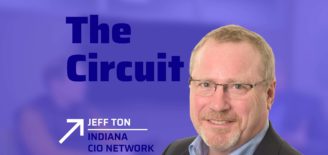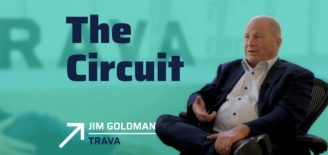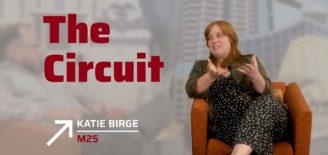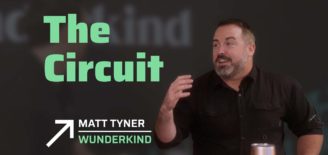Listening Session with Congresswoman Susan Brooks ** LIVE Blog ** from Launch Fishers
This post is a **LIVE blog ** that is being updated in close to real time with the Listening Session featuring Indiana Fifth District Congresswoman Susan W. Brooks and staff from Indiana Seventh District Congressman Andre Carson's office at Launch Fishers. Attributions are not direct quotes but paraphrased chronicling of the discussion as it happens.

Did you know @SusanWBrooks served on the TechPoint Board of Directors? Excited to hear from her today.
— TechPoint (@TechPointInd) February 19, 2014
During her opening remarks, Congresswoman Brooks told stories about how people from Silicon Valley come to Washington D.C. all the time to lobby Congress, and that she always tells them she is from Indiana and "we have great tech companies!"
“I do think we still have a ways to go,"Brooks said. "At least in getting the country to realize, and even in getting Indiana to realize, all the talent we have here.”
After going around the room for introductions, it has become clear that most people in the room are interested in talking about Net Neutrality and Immigration Reform. With a smile, Congresswoman Brooks said "great, two easy subjects."
“Two easy subjects! Immigration and net neutrality!” – @SusanWBrooks response to @MLanj topic proposals
— TechPoint (@TechPointInd) February 19, 2014
Interestingly, Congresswman Brooks says she has not yet been lobbied by either side of the Net Neutrality debate. [Editor's note: If you share your thoughts on Net Neutrality in the comments at the bottom of this post or here, TechPoint will make sure they get to Congresswoman Brooks.]
One of the problems with our current immigration system is that it is focused on families and country quotas and it really doesn't consider careers or the needs of employers like the tech companies and startups here in the room.
Additionally, there is a HUGE trust problem in Washington — specifically, between Congress and the executive branch. Congresswoman Brooks says that even if they pass PERFECT immigration reform that everybody loves, there is no faith in the executive branch to enforce it.
“There is not a trust that [the president] will enforce whatever [Congress] passes.” – @SusanWBrooks on the holdup on immigration reform
— TechPoint (@TechPointInd) February 19, 2014
Purdue University has the second-highest foreign-born population in the country. Susan Brooks has attended Purdue graduations and has thought, “We’ve educated all these young people and now they’re taking all this brain power back to their home countries.”
Employers in the room are sharing horror stories about the red tape that prevents them from hiring foreign workers. Matt Hunckler and Alec Synnestvedt from VERGE Startups recommend checking out the site startupvisa.com for more information about legislation that could make a difference.
“Do you have a computer ROOM at your office? We shouldn’t be thinking of computers as separate from the rest of K-12 education.”@HutchinsJim
— TechPoint (@TechPointInd) February 19, 2014
“As you cram more curricular stuff into the day, you eliminate opportunity for inspiration.” – @MLanj on over-programming in K-12 education
— TechPoint (@TechPointInd) February 19, 2014
Concerning Net Neutrality, Congresswoman Brooks is listening to the opinions of the room on what it is and why it matters. The room is unanimous that Net Neutrality is essential. ZERO dissent.







































